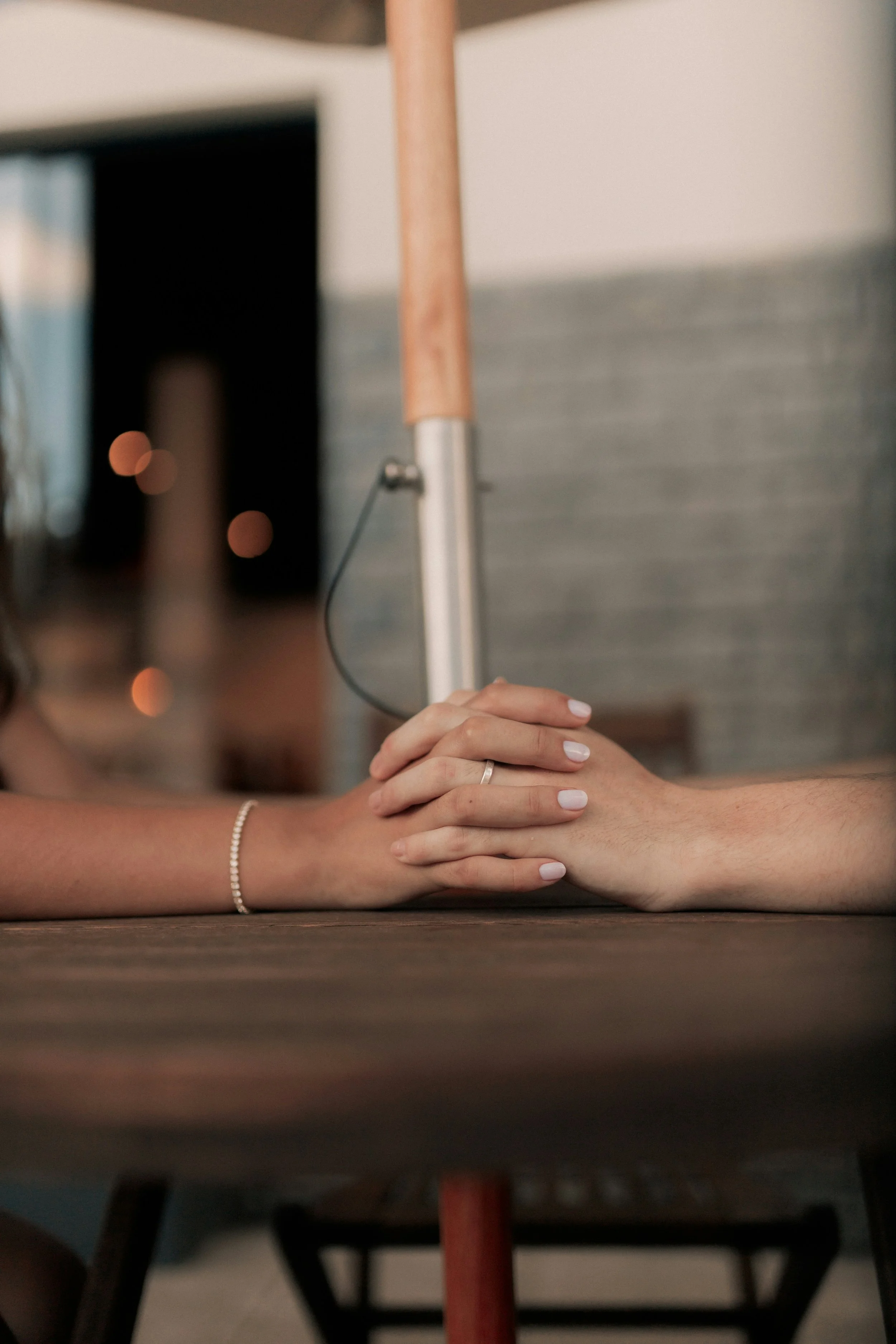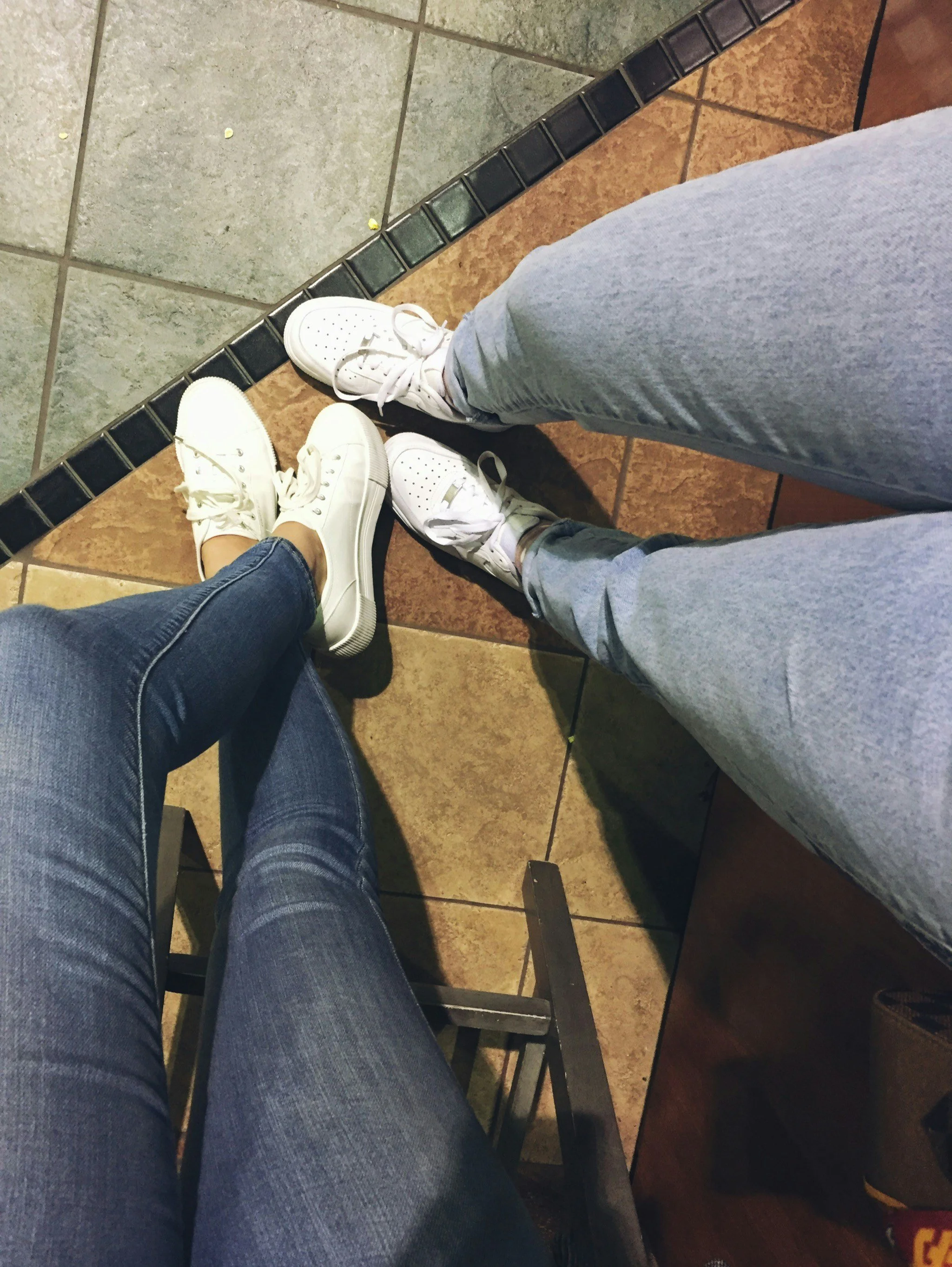What is casual dating?
Table of Contents
What Does Casual Dating Mean?
How Does Casual Dating Compare to Other Arrangements?
Casual Dating vs Situationship
Casual Dating vs Friends with Benefits
What Are the Benefits of Casual Dating?
How Can You Navigate Casual Dating Safely?
Emotional Safety
Physical Safety
Setting Boundaries
What Are the Common Challenges in Casual Dating?
Why Is Communication the Foundation of Casual Dating?
What Role Does Technology Play in Casual Dating?
How Can You Make Casual Dating Work for You?
When Might Casual Dating Not Be Right for You?
Conclusion: Should You Try Casual Dating?
FAQs About Casual Dating
This modern approach to romance is about enjoying connection without the pressure of exclusivity or long-term commitment. Unlike situationships or friends with benefits, it thrives on transparency, communication, and flexibility. It helps with personal growth, relationship skills, and independence, while also presenting challenges like managing multiple partners or unexpected feelings. With honesty and safety, this dating style can be a fun and empowering way to navigate modern relationships.
Traditional relationship models are evolving, and casual dating has emerged as a popular alternative to serious, committed partnerships. Whether you're fresh out of a long-term relationship, focusing on personal growth, or simply exploring your options, this approach offers a refreshing way to experience romance that prioritises freedom, fun, and authentic connections without the pressure of immediate commitment.
This dating style represents a middle ground between being single and entering into an exclusive relationship. It's about enjoying companionship, exploring compatibility, and having meaningful experiences with multiple people without the expectation of long-term commitment or exclusivity. This approach has gained significant traction, particularly among millennials and Gen Z, who value personal independence, career development, and romantic exploration. According to relationship experts, this approach allows individuals to maintain autonomy while still enjoying meaningful connections.
What Does Casual Dating Mean?
This type of relationship involves going on dates, getting to know someone, and developing emotional connections while maintaining the freedom to see other people. Unlike committed relationships, it doesn't involve exclusivity, future planning, or the pressure to define the relationship's trajectory.
The beauty of this approach lies in its flexibility. Participants can enjoy romantic experiences, physical intimacy, and emotional connection while maintaining their independence and personal goals. This allows individuals to explore what they want in a partner and a relationship without making immediate long-term commitments.
For many people, this serves as a learning experience. It provides opportunities to understand personal preferences, develop dating skills, and gain relationship experience in a low-pressure environment. This exploration can ultimately lead to better decision-making when it comes to choosing a life partner, as noted by dating coaches and relationship professionals.
Modern Dating: How Does Casual Dating Compare to Other Arrangements?
Casual Dating vs Situationship
While these arrangements might seem similar, they have distinct differences. This dating style typically involves clear communication about the non-exclusive nature of the relationship, with both parties understanding and agreeing to the arrangement. Situationships, on the other hand, often lack a clear definition and can leave participants uncertain about the relationship's status.
In this approach, there's usually more transparency about seeing other people and less ambiguity about the relationship's nature. Situationships often involve mixed signals, unclear boundaries, and unspoken expectations that can lead to confusion and hurt feelings.
The key advantage of clear arrangements over situationships is the clarity it provides. Both parties know what they're signing up for, which reduces the likelihood of misunderstandings and emotional pain.
Casual Dating vs Friends with Benefits
While these arrangements and friends with benefits (FWB) share some similarities, their dynamics can differ in important ways.
Focus and Intentions: This dating approach often revolves around exploring romantic potential, going on dates, sharing experiences, and sometimes allowing for an emotional connection to grow. FWBs usually start from an existing friendship and add a physical element without the expectation of a traditional romantic relationship.
Emotional Dynamics: In non-committed dating, emotional attachment may be more openly encouraged, since dating typically involves getting to know someone in a romantic context. In FWBs, emotional closeness can still exist (and often does, because of the underlying friendship), but the arrangement usually comes with boundaries to avoid complications tied to traditional romance.
Activities and Interaction: This approach tends to include "date-like" activities such as dinners, movies, or events - spending time together in meaningful ways. FWBs, while sometimes sharing similar interests due to their friendship, often prioritise time spent together that leads to or includes physical intimacy.
Boundaries and Evolution: Non-exclusive dating is more open-ended; it can remain casual, become exclusive, or fade away. FWBs generally rely on clearer rules to preserve the friendship and avoid romantic escalation, although many cases still evolve into something deeper over time.
What Are the Benefits of Casual Dating?
1. Personal Growth and Self-Discovery
This dating style offers numerous opportunities for personal growth and self-discovery. By interacting with different people and experiencing various relationship dynamics, individuals can better understand their preferences, values, and relationship needs. This self-awareness is invaluable when eventually choosing a long-term partner.
The low-pressure environment allows people to be more authentic and experimental in their approach to relationships. They can try new activities, explore different aspects of their personality, and develop confidence in dating situations without the fear of jeopardising a serious relationship.
2. Skill Development
This approach helps develop crucial life skills, including communication, boundary-setting, and emotional intelligence. These skills are transferable to all areas of life and contribute to personal and professional success. People who engage in this type of relationship often report improved confidence and better social skills.
The practice of dating multiple people also helps individuals become better at reading social cues, expressing their needs clearly, and navigating complex emotional situations. These skills prove invaluable in future serious relationships.
3. Career and Life Focus
Many people choose this dating style because it allows them to prioritise other life goals while still enjoying romantic companionship. Whether focusing on career advancement, education, travel, or personal projects, non-exclusive arrangements provide flexibility that serious relationships might not offer.
This approach can be particularly beneficial for young professionals, students, or anyone going through major life transitions. It allows them to maintain social connections without sacrificing their primary objectives.
How Can You Navigate Casual Dating Safely?
1. Emotional Safety
Emotional safety in this dating context begins with honest self-reflection and clear communication. Before entering these arrangements, it's important to understand your own emotional needs and limitations. Some people may find they develop romantic feelings quickly and might not be suited for non-committed dating, while others can maintain emotional distance more easily.
Setting clear boundaries from the beginning is crucial for emotional safety. This includes being honest about your intentions, discussing expectations openly, and regularly checking in with yourself and your dating partners about how the arrangement is working.
2. Physical Safety
Physical safety should always be a priority in casual dating. This includes practising safe sex, getting regular STD testing, and being open about sexual health with partners. Since casual dating often involves multiple partners, maintaining sexual health becomes even more important.
Meeting new people safely involves meeting in public places initially, telling friends about your plans, and trusting your instincts about potential partners. Background checks through social media and mutual friends can provide additional security.
3. Setting Boundaries
Successful non-exclusive dating requires clear, consistent boundaries. These might include agreements about exclusivity (or lack thereof), communication frequency, social media interactions, and future contact. Boundaries should be discussed openly and respected by all parties involved.
It's important to remember that boundaries can evolve. What feels comfortable initially might change as the relationship develops or as personal circumstances shift. Regular communication about boundaries ensures that all parties remain comfortable with the arrangement.
What Are the Common Challenges in Casual Dating?
1. Developing Unexpected Feelings
One of the most common challenges is developing feelings when the arrangement was meant to remain non-committed. This is a natural human response and shouldn't be viewed as a failure. When feelings develop, honest communication becomes even more important.
If you develop feelings during this experience, consider discussing them with your partner. They might feel similarly, or they might prefer to maintain the non-exclusive nature of the relationship. Either outcome is valid, and handling the situation with maturity and respect is key.
2. Managing Multiple Relationships
Seeing multiple people simultaneously requires strong organisational and emotional management skills. It's important to be fair to all parties involved and avoid leading anyone on or creating false expectations.
3. Dealing with Social Judgment
Unfortunately, casual dating sometimes faces social stigma, particularly for women. Overcoming judgment from friends, family, or society requires confidence in your choices and a clear understanding of your motivations for casual dating. Research on modern dating trends shows that attitudes are gradually shifting toward more acceptance of diverse relationship styles.
Building a support network of like-minded individuals can help combat negative judgment. Many people find that connecting with others who understand and support casual dating lifestyles helps them maintain confidence in their choices.
Why Is Communication the Foundation of Casual Dating?
1. Setting Expectations
Clear communication about expectations is the foundation of success in this modern dating approach. This includes discussing what "casual" means to each person, how often you'll communicate, whether you'll see other people, and how you'll handle potential complications.
Initial conversations about expectations should cover topics like exclusivity, sexual health, communication preferences, and future possibilities. While these conversations might feel awkward initially, they prevent misunderstandings and hurt feelings later.
2. Ongoing Check-ins
These relationships benefit from regular check-ins about how the arrangement is working for everyone involved. Feelings and circumstances can change, and maintaining open communication ensures that all parties remain comfortable with the relationship dynamic.
These check-ins don't need to be formal or scheduled, but they should happen naturally as part of your interactions. Simple questions about comfort levels, changing needs, or evolving feelings can prevent major conflicts and ensure mutual respect.
3. Ending Things Gracefully
Not all non-committed arrangements last indefinitely. Sometimes one person develops feelings, circumstances change, or interests shift. Knowing how to end these relationships respectfully is an important skill.
When ending an arrangement, honesty and kindness should guide your approach. Whether the relationship is ending because of developing feelings, changing circumstances, or simply a lack of compatibility, clear communication helps all parties move forward positively.
What Role Does Technology Play in Casual Dating?
Dating Apps and Casual Dating
Technology has revolutionised casual dating, making it easier to meet like-minded individuals who share similar relationship goals. Dating apps often allow users to specify their interest in casual dating, helping match people with compatible intentions. Studies on online dating patterns show that digital platforms have significantly increased opportunities for casual connections.
However, technology also presents challenges for casual dating. The abundance of options can lead to decision paralysis, and the impersonal nature of digital communication can make it difficult to establish genuine connections.
Social Media Considerations
Social media adds complexity to these relationships. Decisions about posting photos together, interacting on social platforms, and maintaining privacy require careful consideration and discussion between partners.
Many people engaging in this dating style choose to keep their relationships relatively private on social media to avoid confusion among friends and family. Others are more open about their dating lives. The key is ensuring all parties are comfortable with the chosen approach.
How Can You Make Casual Dating Work for You?
Self-Awareness and Honest Reflection
Success requires deep self-awareness and honest reflection about your motivations, needs, and limitations. Regular self-assessment helps ensure that this approach continues to serve your best interests and doesn't become emotionally harmful.
Consider keeping a journal or having regular conversations with trusted friends about your experiences. This reflection can help you identify patterns, recognise developing feelings, and make informed decisions about your dating life.
Maintaining Other Relationships
While enjoying this dating style, it's important to maintain other meaningful relationships in your life. Friends, family, and platonic relationships provide essential support and perspective that romantic partnerships might not offer.
Balancing dating with other life priorities ensures that romantic relationships don't become the sole focus of your social life. This balance contributes to overall life satisfaction and personal growth.
When Might Casual Dating Not Be Right for You?
Recognising Your Relationship Needs
This approach isn't suitable for everyone. People who prefer deep emotional connections, exclusive relationships, or traditional relationship progression might find non-committed dating unsatisfying or emotionally challenging.
Signs that this style might not be right for you include consistently developing strong feelings quickly, feeling jealous about partners seeing other people, or constantly hoping for relationships to become more serious. Recognising these patterns helps you make better choices about your dating approach.
Transitioning to Serious Relationships
Some people use this as a stepping stone to serious relationships, while others view it as a long-term lifestyle choice. Understanding your ultimate relationship goals helps determine whether this approach aligns with your broader life plans.
If you find yourself ready for a more serious relationship, transitioning away requires the same honest communication that makes any arrangement successful. Being clear about changing needs helps ensure respectful endings to non-exclusive relationships.
Conclusion: Should You Try Casual Dating?
Casual dating offers a flexible approach to modern romance, emphasising freedom, self-discovery, and authentic connections. With honesty, clear communication, and respect, it can foster meaningful experiences while allowing individuals to maintain independence and focus on personal goals.
If you’re interested in discovering a wider range of relationship styles, our guide on open-minded dating takes a closer look at building connections that go beyond traditional expectations. From fostering trust and communication to understanding emotional boundaries, it offers thoughtful insights on creating authentic relationships that reflect your true values and desires.
Whether it’s a short-term exploration or a preferred lifestyle, casual dating can enhance relationship skills, support personal growth, and clarify future desires. While it isn’t for everyone, it remains a valid choice in today’s evolving relationship landscape.
The key is choosing what aligns with your values and circumstances – and approaching it with honesty, safety, and respect.
Ready to explore relationships on your terms? Sign up here and start your journey today.
Key Takeaways
This dating style means enjoying romance without exclusivity or long-term expectations.
It differs from situationships and friends with benefits because of clearer communication and intent.
Benefits include personal growth, skill-building, and flexibility for career and life goals.
Safety - both emotional and physical - depends on clear boundaries and open communication.
Challenges like unexpected feelings or social judgment can be overcome with honesty and self-awareness.
Technology and dating apps have made non-exclusive dating easier, but require mindful use.
This approach isn't for everyone - recognising your relationship needs is crucial.
Frequently Asked Questions About Casual Dating
-
Casual dating and hooking up can overlap, but they aren't the same. Casual dating usually involves going on actual dates, regular communication, and spending non-sexual time together-even if there's no expectation of long-term commitment. Conversely, a hookup typically refers to spontaneous physical intimacy without emotional attachment or planning for future connection (Wikipedia, PMC, Healthline).
That said, these categories aren’t rigid. Someone in a casual dating scenario may sometimes hook up, and some hookups stem from friendships - especially when emotional bonds already exist (Mindbodygreen, Elite Daily).
-
Casual dating is neither inherently good nor bad – its value depends entirely on individual circumstances, needs, and approaches. For people who value independence, want to focus on personal goals, or aren't ready for serious commitment, casual dating can be extremely positive. It offers opportunities for personal growth, skill development, and self-discovery. However, casual dating can be problematic for people who develop feelings quickly, prefer exclusive relationships, or struggle with jealousy. The key to successful casual dating lies in honest self-assessment, clear communication, and maintaining emotional and physical safety.
-
Casual dating can include kissing and other forms of physical intimacy, but the extent varies based on individual preferences and mutual agreements. Unlike committed relationships, where physical boundaries often develop naturally over time, casual dating requires explicit communication about physical comfort levels and expectations. Some people engaging in casual dating might kiss on first dates, while others prefer to develop emotional connections before physical intimacy. The important thing is that all physical activity is consensual and that expectations are communicated between partners.
-
The primary difference between casual dating and traditional dating lies in expectations and commitment levels. Casual dating typically involves seeing multiple people simultaneously without exclusivity, while traditional dating often progresses toward exclusive relationships and long-term commitment. Casual dating emphasises enjoying the present moment and getting to know someone without pressure for future planning, whereas traditional dating might involve discussions about relationship goals, meeting family members, and planning a future together. However, both approaches can involve genuine emotional connections and meaningful experiences – the difference is in the level of commitment and exclusivity expected.







